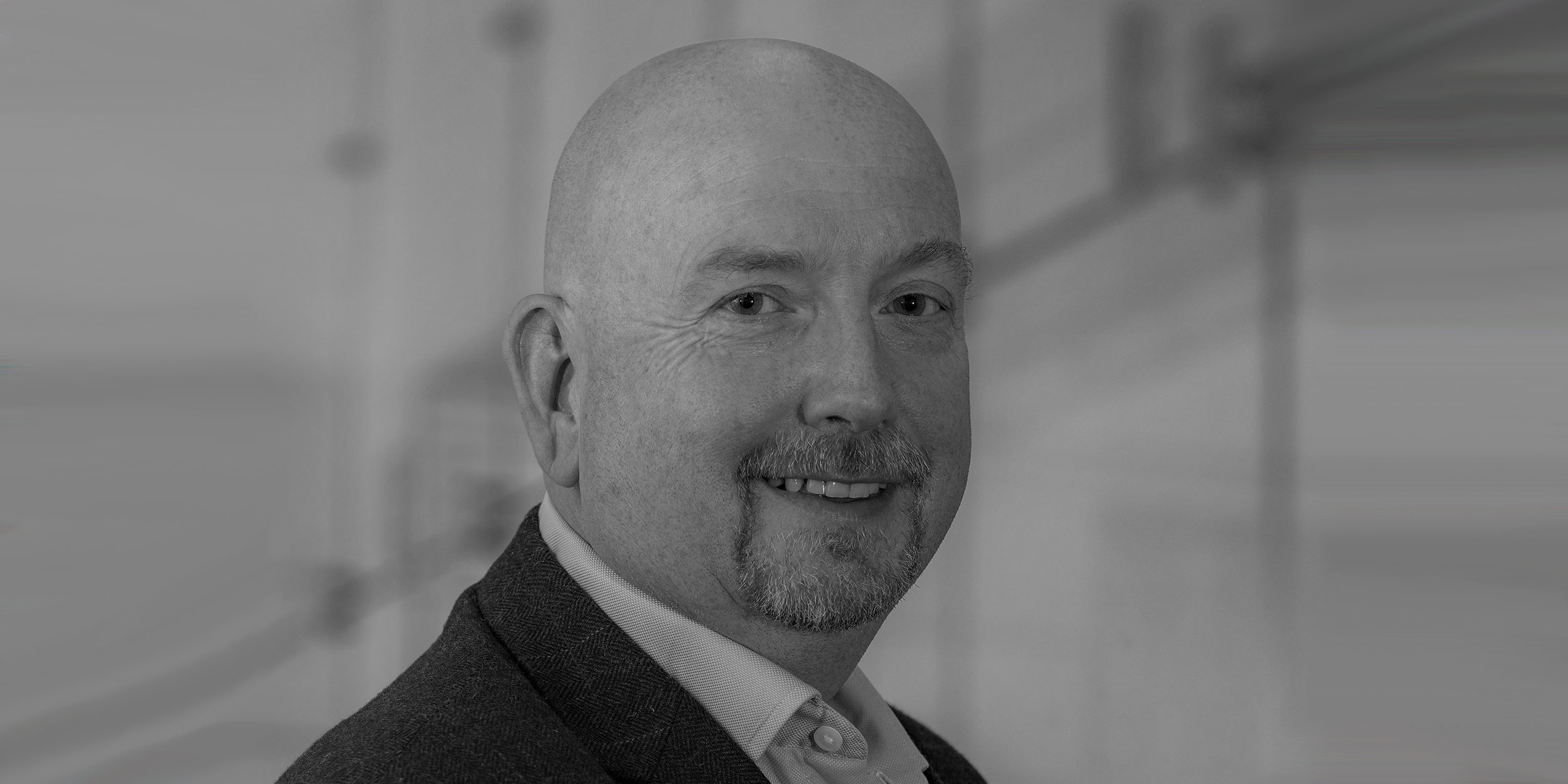Huw’s story: Two decades living with post-traumatic stress disorder
PeopleArticleJune 27, 2022
Huw Jones survived a devastating train crash in 1999. The horrific scenes he witnessed caused him to suffer from post-traumatic stress disorder (PTSD) for more than 22 years. But he’s now reached a stage in his recovery where he can share his experience and help others with their mental health challenges.
Warning: this article contains graphic descriptions of injury and trauma
On October 5, 1999, at 08:06am, a train service to Bedwyn departed Paddington Station, London. Two minutes later it hurtled through a red signal and smashed nearly head-on with a Paddington-bound train at a combined speed of 130 mph (210 km/h).
Huw Jones was on that Paddington-bound train. A Zurich UK employee and volunteer police officer, Huw was traveling from Gloucester to attend a workshop in London.
“I remember hearing an almighty bang and then a real eerie quiet before somebody shouted, ‘remain calm,’” recalls Huw. “My next memory was the train guard radioing for help as it came across the internal speaker system.”
Fires broke out in the wreckage and a fireball ripped through one of the carriages of the Paddington-bound train.
Huw’s carriage was the first to remain upright following the collision – the carriages in front had all fallen on their side. As he climbed out, he heard shouts and screams. Huw’s police training kicked in and he – along with some other passengers – assisted in the rescue of those injured and trapped inside the burning carriages.
But the horrific scenes he witnessed would be etched in his mind for two decades.
“My abiding memory is of a charred body of a man being laid down between the tracks,” says Huw. “He was totally blackened except his backside, which was pure white. I later discovered this was due to him being sat down when the flames engulfed him.
“I must have known he was dead, but I never gave him any dignity by placing a coat over him. Something I still regret to this day, and I actually feel I owe him an apology.”
The psychological aftermath
The Ladbroke Grove rail disaster, as it became known, remains one of the worst rail accidents in British history with 31 fatalities and hundreds more injured. But as well as the physical scars, it left psychological scars for many who witnessed the traumatic events that morning.
“The next day I went to the Cheltenham office until I felt sick and in pain. I went to hospital on the advice of colleagues and was absent from work for about three weeks,” remembers Huw.
Huw was diagnosed with post-traumatic stress disorder (PTSD), which he still has to this day. PTSD is a mental health condition caused by experiencing or witnessing a very stressful, distressing or terrifying event. Symptoms may include flashbacks, nightmares and severe anxiety.
“I struggle to sleep, and I experience erratic behavior, aggression and self-doubt. There’s a whole host of symptoms depending on the trigger,” explains Huw.
Huw’s PTSD can be triggered by the smell of burning diesel or the sound of a mobile phone being left to ring – unanswered phones were heard throughout the day at the site of the crash.
But Huw has a more traumatic trigger, which results in horrific flashbacks. “One of the worst things I witnessed was people burning. And, if I’m watching television and there is a person on fire, I can vomit.
“If that happens, I don’t sleep for about 48 hours. Because all I can remember are the noises, the smells, the sounds, and flashbacks of the charred bodies.”
Suffering in silence
The police offered support to Huw the day following the rail crash. But Huw admits he was not receptive to support at that time. “I should have accepted the help I was offered, instead of pretending I didn’t need it because I’m big, tough and I’m a bloke.”
This was exacerbated by an environment in the police force that was then “very macho,” describes Huw, where nobody spoke about their feelings.
“I've got a couple of good mates who are ex-police and are quite open and honest about past traumatic events. But at the time they didn’t speak about it. It was resolved with a beer and a curry, or you simply finished your shift and went home.”
This inability for Huw to accept, acknowledge and talk about his PTSD meant his condition got progressively worse.
“I’d go to parties, sit in the corner and not enjoy myself. Or I’d pour copious amounts of alcohol down my throat and pretend I was having a laugh,” he says.
Huw’s response is not uncommon. Research from men’s health charity Movember finds that 38 percent of men do not talk to others about their feelings and almost three in 10 have never shown emotion or cried in front of others. Most men suppress their emotions to maintain the appearance of manliness – with nearly a third of men saying they feel pressure to be manly or masculine.
On reflection, Huw wishes he was more open and honest about his condition with his family, particularly his mum and dad, and his colleagues at Zurich and in the police force.
“You can only start to feel better when you’ve got it out in the open. If you hide it, then you have this secret you’re worried might come out at the wrong time or the wrong place. Once it’s out, you can be you. You can talk, you can relax, because you’re not hiding things,” explains Huw.
But Huw continued to hide his mental ill-health; then he hit rock bottom. His father died in 2007 followed by the breakup of his marriage a few months later. At this stage, Huw sought medical assistance and was placed on medication and provided with counseling.
Huw describes this intervention as reasonably successful, but the real turning point came in the past few years when he started a relationship with Vicky. She had known Huw for 40 years and as a former police officer, and now a trainee counsellor, was able to empathize with Huw’s mental health challenges.
Opening up
“Vicky doesn’t judge me and is supportive of me regardless if I’m having a good or bad day,” says Huw. “She has helped me to embrace instead of fight against my condition, and we work together on coping mechanisms that are making me happier and better.
“If it hadn't been for Vicky, I wouldn’t have opened up and that’s because I trust her with my head as well as everything else. I cannot ever thank her enough.”
"Thanks to Vicky’s support, Huw says he has lost 13kg in weight, reduced his alcohol consumption, is eating sensibly and, most importantly, is happy and content with life. He has also become an avid photographer and uses Instagramto share his work, which provides an escape from life’s day-to-day pressures. Huw and Vicky are now married.
Huw is now at a stage in his recovery where he feels he can tell his story and help others. He has seen attitudes toward mental health improve and in the past few years says the culture within Zurich has “changed massively” with mental health no longer an alien subject. There is also greater support, for instance Huw trained to join the Mental Health First Aider program that was launched by Zurich UK over four years ago.
“I’m at the point now where PTSD is not going to control me. I want to help other people learn from my mistakes, so they don’t suffer for as long as I did. I’ve had PTSD for over 22 years. But when did I learn to accept and acknowledge it, instead of fighting it? Probably in the last three years.
“But I am bouncing back and I’m coping better. I am tougher than I was, but I also know my limits. I know when I need support, but importantly I’m no longer ashamed to ask for it.”



